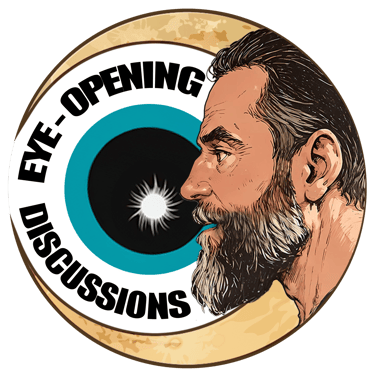
Wisdom is often defined as the ability to make sound decisions and judgments based on knowledge, experience, and deep understanding. It goes beyond just having information; it involves insight, perspective, and an awareness of the complexities of life. Wisdom can manifest in how we navigate relationships, solve problems, and make choices that align with our values.
Why should you care about wisdom?
Better Decision-Making: Wisdom helps you make more informed choices that can lead to better outcomes in your personal and professional life.
Improved Relationships: A wise perspective can enhance empathy and understanding, leading to stronger connections with others.
Emotional Resilience: Wisdom often involves a deeper emotional intelligence, helping you handle challenges and setbacks more gracefully.
Long-Term Perspective: Wisdom encourages thinking about the broader implications of your actions, promoting sustainability for yourself and the community.
How can you mess it up?Overconfidence: Believing you know everything can lead to poor decisions. It's important to remain humble and open to new ideas.
Ignoring Experience: Disregarding lessons from the past can prevent you from learning from both mistakes and successes.
Narrow Thinking: Failing to consider multiple perspectives can limit your understanding of a situation, compromising the wisdom you could gain.
Emotional Reactivity: Letting emotions dictate your responses can cloud judgment and lead you away from wise choices.
Wisdom is essential because it shapes the way we interact with the world and the choices we make. Unlike knowledge, which is simply the accumulation of facts, wisdom is the ability to apply that knowledge thoughtfully and effectively. It provides clarity in uncertain situations, helping you navigate challenges with confidence and purpose. Wisdom allows for deeper connections with others, as it fosters empathy and understanding in relationships. It also cultivates resilience, enabling you to manage setbacks with grace and perspective. Without wisdom, decisions can become impulsive, relationships strained, and opportunities missed. By embracing wisdom, you gain the ability to think long-term, consider the consequences of your actions, and build a life of meaning and fulfillment.
Wisdom is applied through thoughtful decision-making, reflection, and continuous learning. It requires balancing knowledge with experience to navigate complex situations with clarity and confidence. Practicing wisdom involves considering multiple perspectives before making choices, recognizing emotional influences, and learning from both successes and mistakes. It is exercised in relationships by fostering empathy and understanding, in problem-solving by approaching challenges with patience and reason, and in long-term planning by evaluating consequences and sustainability. By actively seeking insights, questioning assumptions, and embracing growth, wisdom becomes a guiding force that transforms knowledge into meaningful action.


